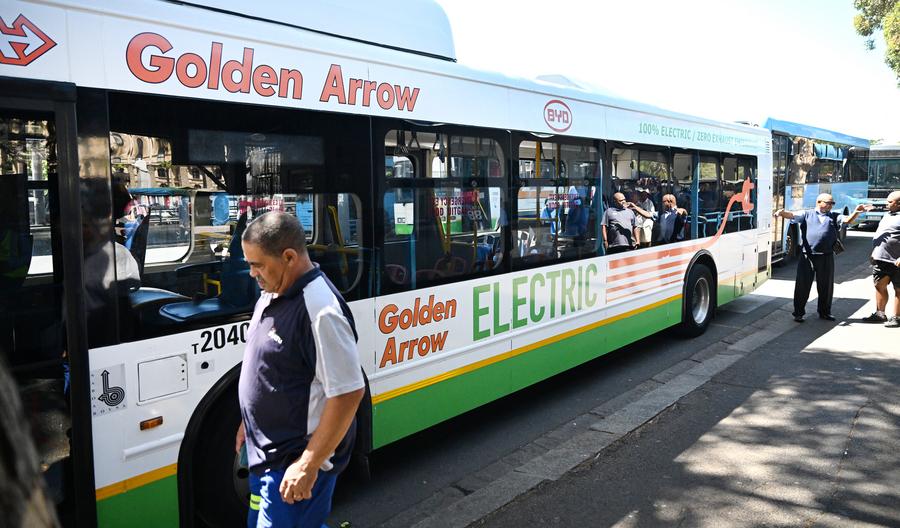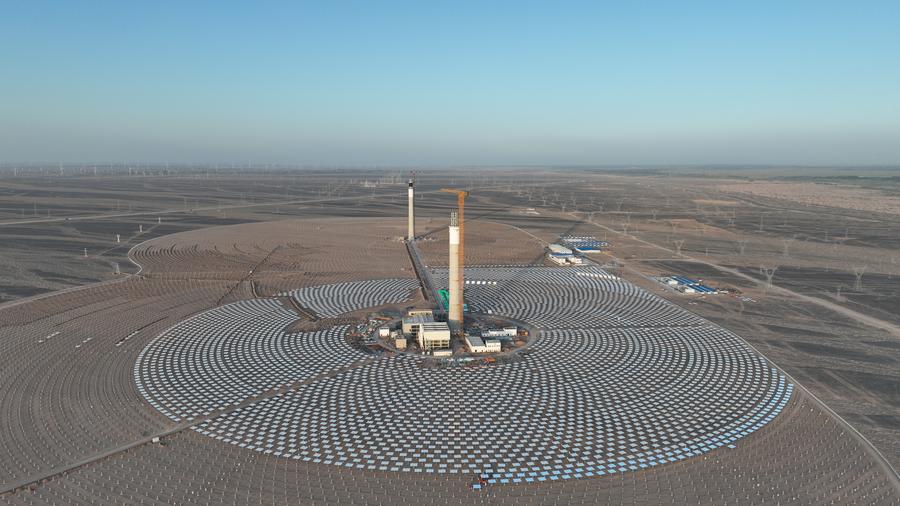
Passengers board a BYD electric bus in Cape Town, South Africa, Feb. 28, 2024. China-made electric buses have been incorporated into the day-to-day operations of Golden Arrow Bus Services here. (Photo by Xabiso Mkhabela/Xinhua)
BEIJING, Aug. 7 (Xinhua) -- China's contributions to world sustainable development have been reflected by the robust growth of its patents, with a recent report by the country's top intellectual property regulator saying that China had secured top spot in terms of the number of published green and low-carbon patent applications in 2023, recording a year-on-year increase of 20 percent and accounting for over half of the global total.
This rise was 7.1 percentage points higher than the global average, the China National Intellectual Property Administration highlighted in the Report on Statistical Analysis of Green and Low-Carbon Patents.
It defines green and low-carbon patents as those centered on technologies that can promote green development. These encompass five key domains -- carbon reduction of fossil energy, energy saving and energy recycling and utilization, clean energy, energy storage, and greenhouse gas capture, utilization and storage.

An aerial drone photo taken on July 16, 2024 shows a solar thermal energy storage power station in Guazhou County, northwest China's Gansu Province. (Xinhua)
China performed well in the field of energy storage, achieving 37,000 patent applications in 2023 alone, accounting for 48 percent of the global volume. Concerning clean energy, China's number of invention patent applications for solar energy and hydrogen energy was the highest worldwide, reaching 8,000 and 5,000, respectively.
China's number of applications for green and low-carbon technologies via the Patent Cooperation Treaty, an international patent protection system, had surpassed 5,000 in 2023, securing the global number one position for a third consecutive year, the report revealed.
Notably, China has been the world's leading filer of patent applications since 2019, according to the World Intellectual Property Organization.




 A single purchase
A single purchase









